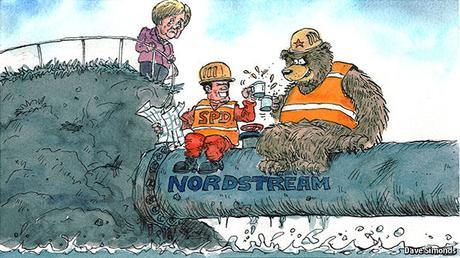
THIS week Horst Seehofer, the premier of Bavaria and an unruly ally of Chancellor Angela Merkel, ruffled German diplomatic feathers by visiting Vladimir Putin, Russia’s president. Mr Seehofer’s trip carried no official weight. But hugging a leader whom Mrs Merkel treats warily further confused Germany’s muddled “eastern policy”, or Ostpolitik.
The term dates back to the rapprochement with the communist bloc begun in 1969 by Willy Brandt, West Germany’s first Social Democratic chancellor. It set in motion the normalisation of relations with East Germany and other Warsaw Pact nations, as well as easing tensions with the Soviet Union. Today Social Democrats still credit Ostpolitik for the eventual fall of the Berlin Wall. After German reunification, which required Soviet blessing, the conciliatory spirit spread to the centre-right Christian Democrats, led today by Mrs Merkel. It has also spawned the notion of Russlandversteher (“Russia-understanders”), Germans who mix sympathy for Russia with antipathy for America.
The chancellor suspended her belief in…
The Economist: Europe

